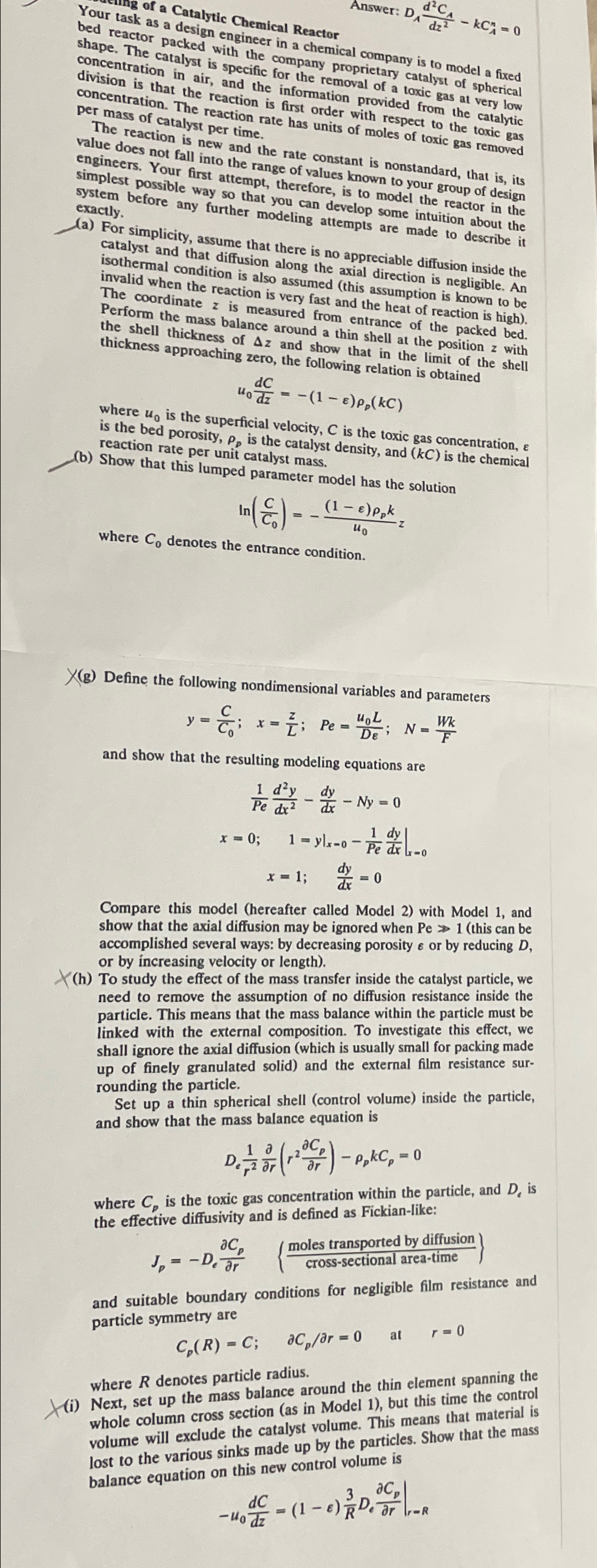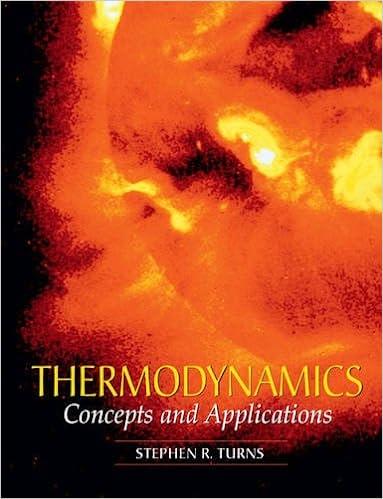Answered step by step
Verified Expert Solution
Question
1 Approved Answer
Your task as Catalytic Chemical Reactor Answer: D A d 2 C A d z 2 - k C A n = 0 bed reactor
Your task as Catalytic Chemical Reactor
Answer:
bed reactor packed with the in a chemical company is to model a fixed shape. The catalyst is specific for the remoyaletary catalyst of spherical concentration in air, and the information provided from the very low concentration. The reaction is first order with respect to the catalytic per mass of catalyst per time. has units of moles of toxic gas removed The reaction is per time.
value does not fall into the the rate constant is nonstandard, that is its engineers. Your first attempt, range of values known to your group of design simplest possible way so that, therefore, is to model the reactor in the System before any further modeling develop some intuition about the exactly.
attempts are made to describe it catalyst and that diff that there is no appreciable diffusion inside the isothermal condition is along the axial direction is negligible. An invalid when the reaction is very fast this assumption is known to be The coordinate is measured from the heat of reaction is high Perform the mass balance around a thin shell at the position with. the shell thickness of and show that in the limit of the whell thickness approaching zero, the following relation is obtained
where is the superficial velocity, is the toxic gas concentration, is the bed porosity, is the catalyst density, and is the chemical reaction rate per unit catalyst mass.
b Show that this lumped parameter model has the solution
where denotes the entrance condition.
Define the following nondimensional variables and parameters
;;;
and show that the resulting modeling equations are
;
;
Compare this model hereafter called Model with Model and show that the axial diffusion may be ignored when this can be accomplished several ways: by decreasing porosity or by reducing or by increasing velocity or length
h To study the effect of the mass transfer inside the catalyst particle, we need to remove the assumption of no diffusion resistance inside the particle. This means that the mass balance within the particle must be linked with the external composition. To investigate this effect, we shall ignore the axial diffusion which is usually small for packing made up of finely granulated solid and the external film resistance surrounding the particle.
Set up a thin spherical shell control volume inside the particle, and show that the mass balance equation is
where is the toxic gas concentration within the particle, and is the effective diffusivity and is defined as Fickianlike:
and suitable boundary conditions for negligible film resistance and particle symmetry are
;delelr
where denotes particle radius.
i Next, set up the mass balance around the thin element spanning the whole column cross section as in Model but this time the control volume will exclude the catalyst volume. This means that material is lost to the various sinks made up by the particles. Show that the mass balance equation on this new control volume is

Step by Step Solution
There are 3 Steps involved in it
Step: 1

Get Instant Access to Expert-Tailored Solutions
See step-by-step solutions with expert insights and AI powered tools for academic success
Step: 2

Step: 3

Ace Your Homework with AI
Get the answers you need in no time with our AI-driven, step-by-step assistance
Get Started


